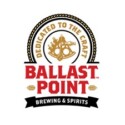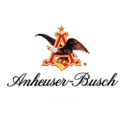For consumers brewery might seem to be a niche industry, but the needs of the industry in terms of processing and packaging are immense. It’s not just that beer is the most widely consumed alcoholic beverage in the world, but also because there are so many different types of beer that are brewed, and also a variety of ways to package it.
While beer is commonly made from barley, it can also be made from wheat, corn, or even rice. Whichever grain ingredient is chosen, hops are added to flavor the brew, act as a natural preservative, and to help clarify the beer. Carbonation is created during the fermentation process that results in an alcohol content that is usually between four and six percent, but can be a lot higher.
While there are two major types of beer lager and ale, within these categories there are numerous varieties, including porter and stout which are dark ales, and bock, a dark German lager, as well as malts and pilsners.
SMB customers range from mainstream global brewers that make brand names recognized throughout most of the world, to microbreweries that make their own special craft beers. All have their own special needs that relate specifically to the types of beers they produce, and the way these are supplied to retail outlets.
The Brewing Process
While ales take less time to produce than lagers, the typical brewing process has eight steps, from milling to filtering, after which it is packaged by filling into bottles, cans, barrels, smaller kegs or tanks for dispensing draught beer.
The process, simplified includes:
- Milling, during which the barley or other grain is crushed.
- Malting, when malt is added to the grain.
- Mashing which involves mixing the crushed malted grain with water, heating the mix, and then allowing the starches to break down and form a mash.
- Lautering, when the spent grain is separated to form liquid wort that contains the sugar that will be fermented when brewing yeast is added. First the undiluted wort is extracted from the grains; then what remains is rinsed with hot water to extract the sugars in a process known as sparging.
- Boiling of the wort for one or two hours to ensure it is sterile and won’t be contaminated. Hops are added at this stage.
- Fermentation that is initiated by adding yeast to the boiled wort in a large vat, resulting in its alcohol content.
- Conditioning which causes protein and remaining yeast cells to settle at the bottom of the fermentation tank.
- Filtering, to clarify the beer prior to bottling, canning or filled into another vessel.
Tanks and Containers for Brewing
Different tanks and containers are required for different parts of the brewing process. These include grain silos, mills, weighing systems, mash tuns, pumps, lauter tuns, wort grants, coolers and aerators, brew kettles, yeast handling systems, fermenters, bright beer tanks, filters, and a variety of other tanks for mixing and storage. There are also CIP systems, carbo-coolers, home brewing kits, and distillation systems. And within each of these categories there are multiple choices in terms of size and precise operation.
When it comes to fermentation, this is normally done in stainless steel tanks that have a valve that regulates the pressure required to produce different types of beer. If these tanks have cooling jackets, conditioning can be done in the same tanks. If not, and the fermentation cellar is cooled, then the beer must be conditioned in separate tanks in another cellar.
SMB Machinery Brewery Processing and Packaging Equipment
The kind of equipment used for filling and packaging depends on the type of primary packaging required. If glass bottles are used, then pressure fillers with crowners may be used. Various gravity fillers are also suitable. Valve can fillers, on the other hand, are used for canned beer.
Breweries also use various tanks depending on their needs.
In addition, there are palletizers and depalletizers, case as well as can and bottle conveyors, uncasers, can and bottle rinsers, can closers, crowns and cappers, pasteurizers, inspection systems, keg washers and fillers, and more.
SMB Machinery is a one-stop-shop for all of your beer production needs, regardless of how big or small your operation is. Let us take care of your equipment needs while you focus on what you do best – producing top quality beer your customers will love.
SMB Machinery Proudly Serves:









